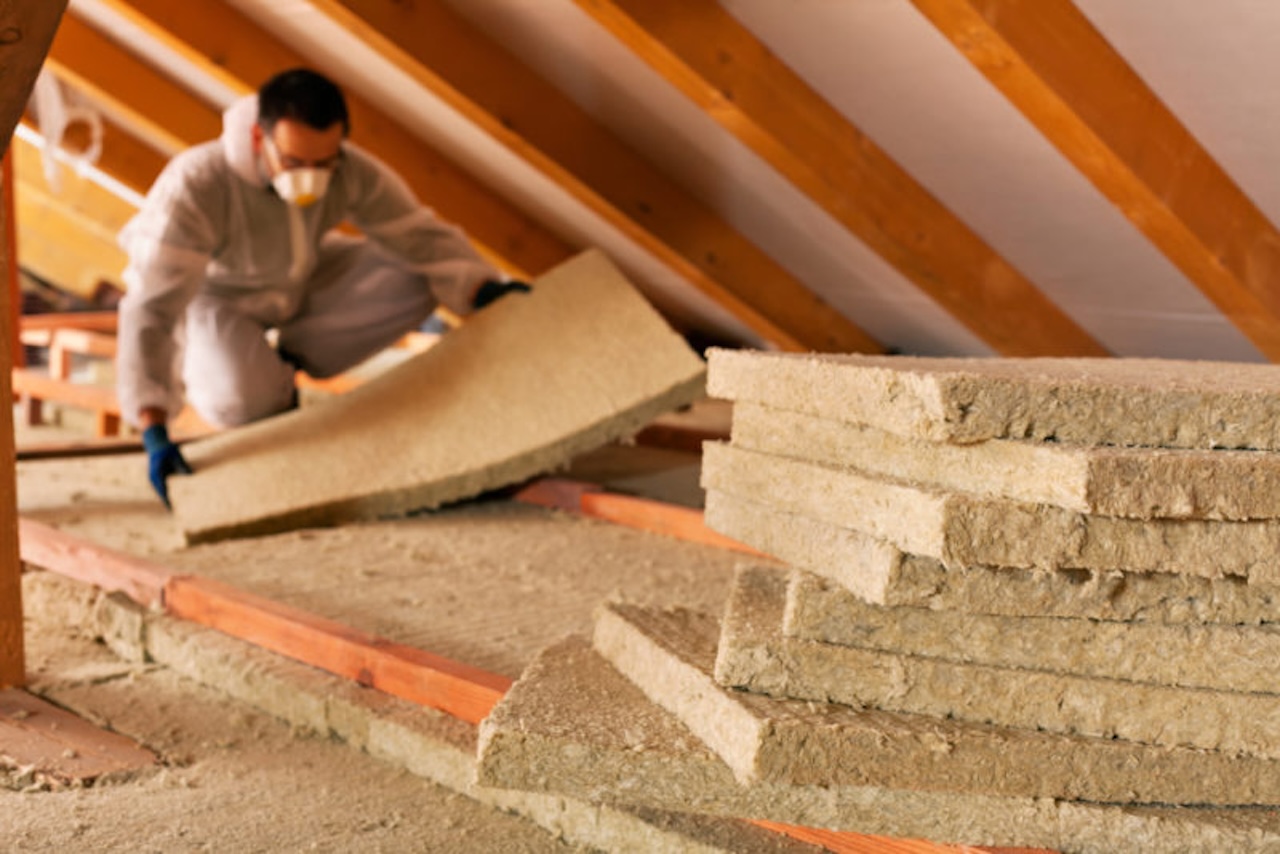

Articles
How Does Attic Insulation Help In Summer
Modified: February 23, 2024
Learn how attic insulation can make a significant difference in keeping your home cool during the summer months. Explore our informative articles to find out more.
(Many of the links in this article redirect to a specific reviewed product. Your purchase of these products through affiliate links helps to generate commission for Storables.com, at no extra cost. Learn more)
Introduction
As the summer heat intensifies, it becomes increasingly important to ensure that our homes are well-insulated, not just to keep the interior cool and comfortable, but also to reduce energy consumption and lower utility bills. Attic insulation plays a vital role in maintaining a comfortable temperature throughout the year, but its importance becomes even more pronounced during the hot summer months.
Attic insulation acts as a barrier between the outside elements and the interior of your home, preventing the transfer of heat and keeping the living spaces cooler. In this article, we will explore the significance of attic insulation in summer, the benefits it provides during hot weather, factors affecting its effectiveness, and how much it actually helps in reducing summer heat. Additionally, we will provide some tips for improving attic insulation during the summer months.
By the end of this article, you will understand the importance of having proper attic insulation and how it can significantly impact your comfort and energy efficiency during the scorching summer season.
Key Takeaways:
- Proper attic insulation is essential for maintaining a cool and comfortable home during the scorching summer months. It reduces energy consumption, enhances comfort, and contributes to a more sustainable and environmentally-friendly living environment.
- Factors such as insulation type, thickness, installation quality, and ventilation significantly impact attic insulation’s effectiveness in reducing summer heat. Regular maintenance and professional inspection are crucial for maximizing its performance and ensuring a cooler, more energy-efficient home.
Read more: How To Keep The Attic Cool In Summer
What is Attic Insulation?
Attic insulation refers to the materials and techniques used to reduce the transfer of heat between the attic space and the rest of the home. It acts as a barrier that prevents the infiltration of outside heat during the summer and retains indoor heat during the winter months.
The main purpose of attic insulation is to create a thermal barrier that regulates the temperature inside your home. It helps to keep the indoor environment cooler in the summer and warmer in the winter by reducing the transfer of heat through the roof and attic.
Attic insulation is typically installed in the floor of the attic, between the joists or on the attic ceiling. Common materials used for insulation include fiberglass, cellulose, spray foam, and mineral wool. These materials are chosen for their ability to resist heat flow and provide effective insulation.
Insulation works by trapping air pockets within its structure, which helps to slow down the transfer of heat. It acts as a thick blanket, preventing the hot air from outside from seeping into the living spaces below, and vice versa in the winter.
In addition to the insulation material itself, proper installation is crucial to ensure its effectiveness. It requires careful attention to detail to eliminate any gaps or compression that can impede its ability to provide adequate insulation.
Overall, attic insulation plays a vital role in maintaining a comfortable and energy-efficient home. It helps to reduce the load on your cooling system during the summer, keeping the interior cooler and more comfortable, while also preventing heat loss during the winter.
Now that we have a clear understanding of what attic insulation is, let’s explore its significance in the context of the summer season.
The Importance of Attic Insulation in Summer
Attic insulation is of utmost importance during the summer months when the sun beats down relentlessly and temperatures rise to unbearable levels. Without proper insulation, the heat from the sun can seep through the roof and into the living spaces below, significantly increasing the indoor temperature and making the home uncomfortable.
Here are some key reasons why attic insulation is crucial in summer:
1. Energy Efficiency:
Attic insulation helps to reduce the load on your cooling system by preventing the transfer of heat from the attic to the rest of the house. This means that your air conditioning unit doesn’t have to work as hard to maintain a comfortable temperature, resulting in lower energy consumption and reduced utility bills.
2. Temperature Regulation:
Properly insulated attics act as a buffer zone between the scorching heat outside and the living spaces inside your home. By preventing the heat from infiltrating the interior, attic insulation helps to maintain a consistent and comfortable temperature throughout the house, creating a more pleasant living environment.
Read more: Which Way Does Insulation Face In Attic
3. Increased Comfort:
Attic insulation plays a crucial role in making your home more comfortable during the hot summer months. By reducing heat transfer, insulation helps to prevent hot spots and temperature imbalances within the house, making every room feel cooler and more enjoyable to be in.
4. Preservation of Structural Integrity:
Extreme heat can lead to the expansion and contraction of building materials, which can potentially cause structural damage to your home over time. Attic insulation helps to regulate the temperature in the attic, minimizing the risk of structural issues caused by excessive heat.
5. Environmental Impact:
Reducing energy consumption through proper attic insulation not only benefits your wallet but also has a positive impact on the environment. By reducing the load on your cooling system, you are minimizing your carbon footprint and contributing to a more sustainable future.
In summary, attic insulation is essential during the summer months for its ability to improve energy efficiency, regulate temperatures, increase comfort, preserve the structural integrity of your home, and have a positive environmental impact. Now that we understand its importance, let’s delve into the specific benefits that attic insulation provides during hot weather.
Benefits of Attic Insulation During Hot Weather
Attic insulation offers several benefits during hot weather, ensuring that your home remains cool and comfortable even when the temperature outside soars. Let’s explore some of the key advantages:
1. Temperature Control:
Proper attic insulation serves as a barrier, preventing the intense heat from the sun from entering your home. It helps to regulate the temperature, ensuring that the interior stays cooler and more comfortable, regardless of how hot it gets outside.
2. Energy Savings:
Attic insulation helps to reduce the reliance on air conditioning by preventing the transfer of heat into the living spaces. This results in reduced energy consumption and lower utility bills, making attic insulation a cost-effective solution in the long run.
3. Enhanced Indoor Comfort:
With proper attic insulation, you can enjoy a comfortable living environment even during the hottest days. Insulation keeps the indoor temperature consistent, eliminates hot spots, and reduces the need for continuous air conditioning, ensuring that every corner of your home remains enjoyable.
4. Reduced Strain on Cooling Systems:
Attic insulation eases the workload on your air conditioning unit by minimizing the transfer of heat from the attic into the living spaces. This reduces the strain on the cooling system, prolonging its lifespan and reducing maintenance and repair costs.
Read more: How Hot Can An Attic Get In The Summer
5. Noise Reduction:
In addition to its thermal properties, attic insulation also helps to minimize noise transmission from the outside. It acts as a barrier, reducing the amount of noise that enters your living spaces, providing a quieter and more peaceful atmosphere.
6. Improved Indoor Air Quality:
Attic insulation prevents the infiltration of dust, pollen, and other allergens into your home. By creating a tight seal, insulation minimizes the entry of outdoor contaminants, resulting in improved indoor air quality and a healthier living environment for you and your family.
Overall, the benefits of attic insulation during hot weather are numerous. From better temperature control and energy savings to enhanced comfort, reduced strain on cooling systems, noise reduction, and improved indoor air quality, proper attic insulation is a wise investment for a more comfortable and efficient home.
Now, let’s explore some of the factors that can affect the effectiveness of attic insulation during the summer months.
Factors Affecting the Effectiveness of Attic Insulation in Summer
While attic insulation plays a crucial role in maintaining a cooler home during the summer, there are several factors that can affect its effectiveness. It’s important to consider these factors to ensure that your insulation is performing optimally. Let’s explore some of the key factors:
1. Insulation Type and Quality:
The type and quality of insulation you choose can significantly impact its effectiveness. Different insulation materials have varying thermal resistance properties. Ensure that you select an insulation material with the appropriate R-value for your climate to achieve optimal results.
2. Insulation Thickness:
The thickness or depth of attic insulation is another critical factor. The thicker the insulation, the better it will be at preventing heat transfer. Make sure you have enough insulation installed to achieve the recommended R-value for your region.
3. Installation Quality:
Even the highest quality insulation can be rendered ineffective if not installed correctly. Improper installation can lead to gaps, compressed insulation, and thermal bridging, all of which can compromise its efficiency. Hiring a professional insulation contractor is recommended to ensure proper installation.
4. Ventilation:
Attic ventilation is essential for maximizing the effectiveness of insulation. Proper ventilation helps to remove trapped hot air from the attic, preventing excessive heat buildup. It works hand in hand with insulation to maintain a cooler attic and prevent the transfer of heat into the living spaces.
5. Air Leaks and Sealing:
Air leaks in the attic can undermine the effectiveness of insulation. These leaks allow hot air to enter the attic and bypass the insulation, increasing the heat transfer into your home. Seal any air leaks, such as gaps around ductwork, pipes, or electrical cables, to enhance insulation effectiveness.
Read more: How Important Is Attic Insulation
6. Roof Color and Shading:
The color of your roof and the amount of shading it receives can affect the temperature inside the attic. Dark-colored roofs absorb more heat, leading to higher attic temperatures. Consider using lighter-colored roofing materials or implementing shading options, such as trees or awnings, to minimize heat absorption.
By considering these factors and ensuring that your attic insulation is installed and maintained properly, you can maximize its effectiveness and enjoy a cooler and more energy-efficient home during the summer months.
Now that we have explored the factors that impact attic insulation’s effectiveness, let’s delve into the question of how much attic insulation actually helps in reducing summer heat.
How Much Does Attic Insulation Help in Reducing Summer Heat?
Attic insulation plays a significant role in reducing the transfer of heat from the hot summer sun into the living spaces of your home. While the exact reduction in summer heat will vary depending on various factors, the right insulation can provide significant benefits. Here’s what you need to know about how much attic insulation helps in reducing summer heat:
1. R-Value:
The R-value of insulation measures its resistance to heat flow. The higher the R-value, the better the insulation’s ability to resist heat transfer. The recommended R-value for attic insulation varies based on climate and region. To maximize the reduction of summer heat, it’s crucial to choose attic insulation with the appropriate R-value for your area.
2. Thermal Barrier:
Attic insulation creates a thermal barrier that prevents the sun’s heat from infiltrating your home. It helps to keep the hot air outside and the cool air inside, reducing the need for constant air conditioning. The insulation slows down the transfer of heat, allowing your cooling system to work more efficiently and maintain a comfortable indoor temperature.
Read more: How To Insulate A Garage Attic
3. Energy Savings:
By reducing the transfer of heat, attic insulation helps to reduce the load on your cooling system. This can result in significant energy savings during the summer months. With proper insulation, you can expect to see a decrease in your cooling costs and enjoy a more sustainable and environmentally-friendly home.
4. Comfortable Living Environment:
A well-insulated attic creates a more comfortable living environment during the hottest days of summer. It helps to maintain a consistent indoor temperature, eliminating hot spots and improving overall comfort. With proper insulation, you can enjoy a cool, calm, and pleasant home, even when the sun is blazing outside.
5. Reduced Heat Gain:
Attic insulation reduces heat gain by preventing the transfer of heat into the living spaces below. This can be particularly beneficial for rooms directly beneath the attic, as they can experience the most significant heat gain without proper insulation. With effective insulation, the temperature in these rooms can be significantly reduced.
6. Comfort Zone Expansion:
With proper attic insulation, the comfort zone of your home expands. This means that even on extremely hot days, your home will remain cooler and more comfortable. Effective insulation allows you to spend more time indoors without feeling the need to rely solely on air conditioning.
While it’s challenging to quantify the exact percentage of summer heat reduction that attic insulation provides, it can make a substantial difference in maintaining a comfortable indoor temperature during hot weather. The insulation’s effectiveness will depend on factors such as insulation type, thickness, installation quality, ventilation, and overall home’s insulation strategy.
Now that we understand the impact of attic insulation on reducing summer heat, let’s explore some tips for improving attic insulation specifically for the summer season.
Read more: How To Insulate A Finished Attic
Tips for Improving Attic Insulation During the Summer
Improving attic insulation specifically for the summer season can help maximize its effectiveness in reducing heat and maintaining a cooler home. Here are some helpful tips to enhance your attic insulation during hot weather:
1. Check Insulation Levels:
Begin by checking the current insulation levels in your attic. Ensure that you have the recommended R-value for your area. If the insulation is inadequate, consider adding more to boost its effectiveness in reducing summer heat.
2. Seal Air Leaks:
Air leaks in your attic can undermine the effectiveness of insulation. Look for gaps around pipes, ductwork, vents, and electrical fixtures. Seal these leaks using caulk, foam, or weatherstripping to prevent hot air from entering and cool air from escaping.
3. Improve Ventilation:
A well-ventilated attic allows hot air to escape and keeps the space cooler. Ensure that your attic has proper ventilation, including ridge vents, soffit vents, gable vents, or powered attic fans. Good ventilation helps prevent heat buildup and enhances the performance of insulation.
Read more: How To Add Insulation In Attic
4. Use Reflective Materials:
Consider installing radiant barriers or reflective insulation in your attic. These materials reflect the sun’s heat, reducing the amount of heat that penetrates into your home. They can be particularly effective in hot climates where direct sunlight exposure is significant.
5. Shade the Attic:
Provide exterior shading for your attic to minimize heat absorption. Planting trees or installing awnings, pergolas, or shade screens can help reduce the direct sun exposure to your roof, keeping your attic cooler and reducing heat transfer.
6. Insulate Air Ducts:
Insulating the air ducts in your attic can help prevent thermal losses and maintain cooler air temperatures. Insulated ducts reduce heat transfer and ensure that the cooled air from your HVAC system reaches your living spaces more efficiently.
7. Schedule Professional Inspection:
Consider hiring a professional to inspect your attic insulation and assess its effectiveness. They can identify any issues, provide recommendations for improvements, and ensure that your insulation is properly installed and performing optimally.
By implementing these tips, you can enhance your attic insulation’s performance during the summer months, resulting in a cooler and more comfortable home environment.
It’s important to remember that attic insulation is not a one-time solution. Regular maintenance, inspection, and upkeep are necessary to ensure that it continues to perform effectively. Now, let’s wrap up our discussion on attic insulation in summer.
Read more: How To Insulate Roof In Attic
Conclusion
Attic insulation plays a crucial role in maintaining a cool and comfortable home during the summer months. By acting as a barrier against the heat from the sun, insulation helps to regulate indoor temperatures, reduce energy consumption, and enhance overall comfort. With proper attic insulation, you can create a more sustainable, energy-efficient, and enjoyable living environment for you and your family.
Throughout this article, we have explored the importance of attic insulation in summer and its benefits, including temperature control, energy savings, improved comfort, and reduced strain on cooling systems. We have also discussed factors that can affect its effectiveness, such as insulation type, installation quality, ventilation, and air sealing. Understanding these factors is essential to ensure that your insulation performs optimally in reducing summer heat.
While it’s challenging to quantify the exact percentage of heat reduction that attic insulation provides, its impact in maintaining a cooler home during hot weather cannot be understated. Attic insulation creates a thermal barrier, reduces heat gain, expands your comfort zone, and contributes to energy efficiency. It not only saves you money on utility bills but also has a positive environmental impact by reducing your carbon footprint.
If you want to improve your attic insulation, consider checking insulation levels, sealing air leaks, enhancing ventilation, using reflective materials, shading the attic, insulating air ducts, and seeking professional inspection and guidance. These steps can help maximize the effectiveness of your attic insulation, ensuring that your home remains cool, comfortable, and energy-efficient all summer long.
Remember, attic insulation is a long-term investment. Regular maintenance and periodic inspections are necessary to ensure its continued performance. By taking care of your attic insulation, you can enjoy the benefits of a well-insulated home for years to come.
So, take the necessary steps to enhance your attic insulation and reap the rewards of a cooler, comfortable, and energy-efficient home during the scorching summer months. Stay cool, save energy, and enjoy the summer season!
Frequently Asked Questions about How Does Attic Insulation Help In Summer
Was this page helpful?
At Storables.com, we guarantee accurate and reliable information. Our content, validated by Expert Board Contributors, is crafted following stringent Editorial Policies. We're committed to providing you with well-researched, expert-backed insights for all your informational needs.
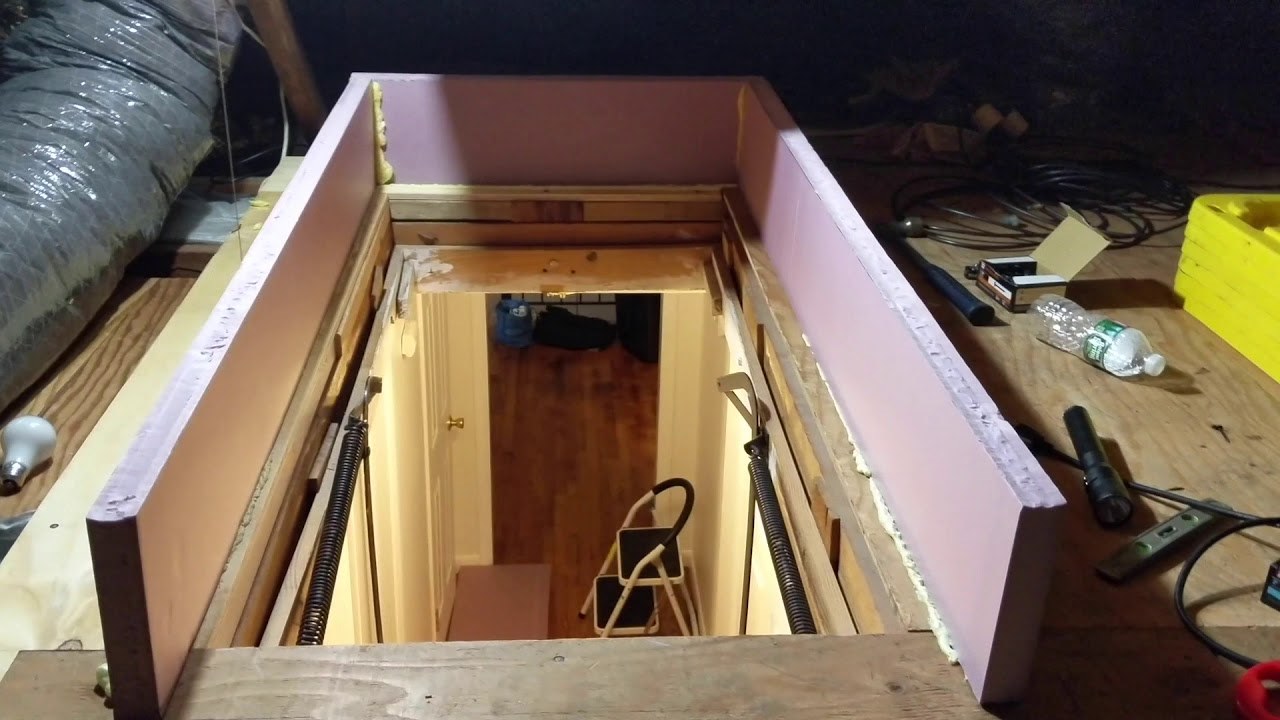
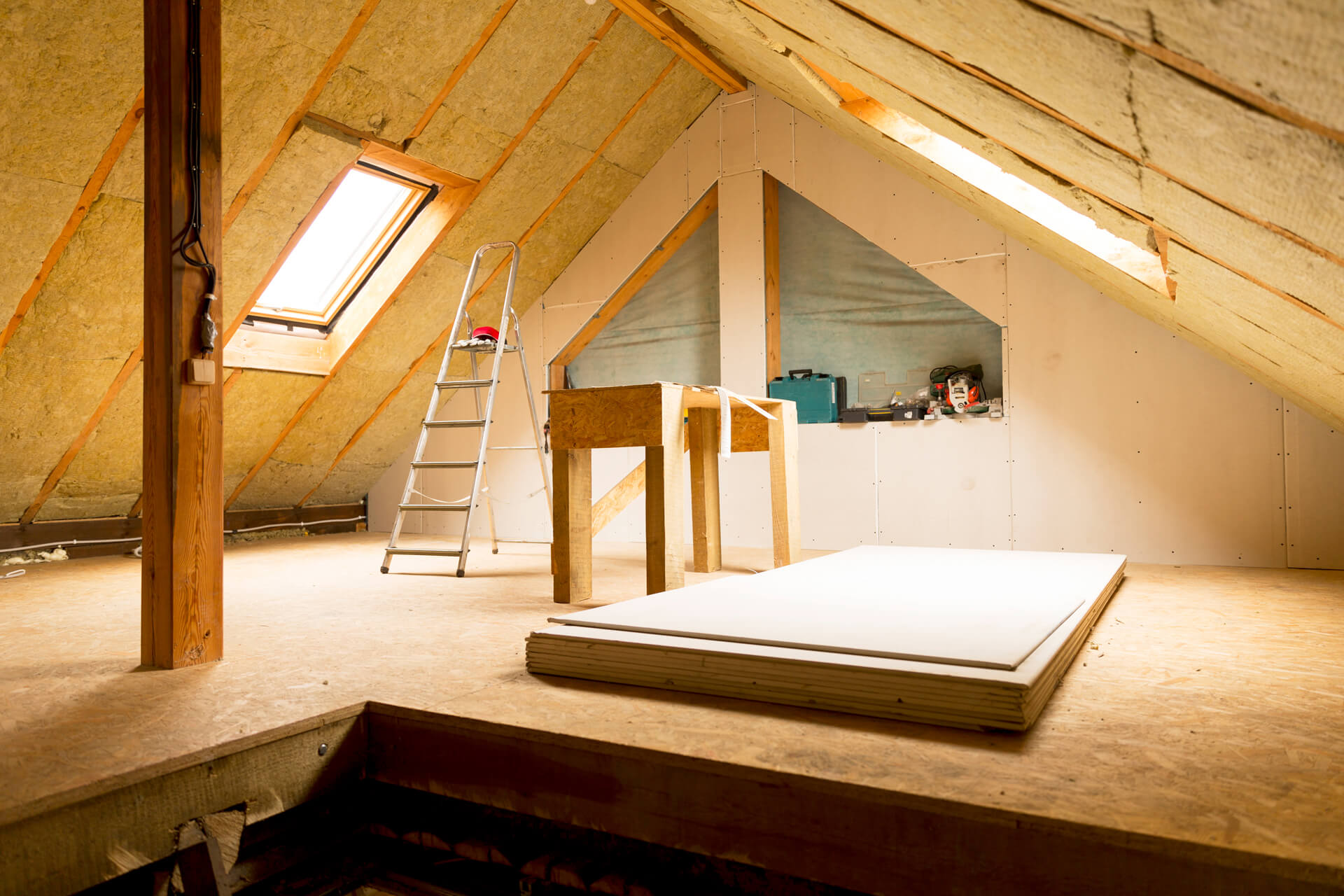
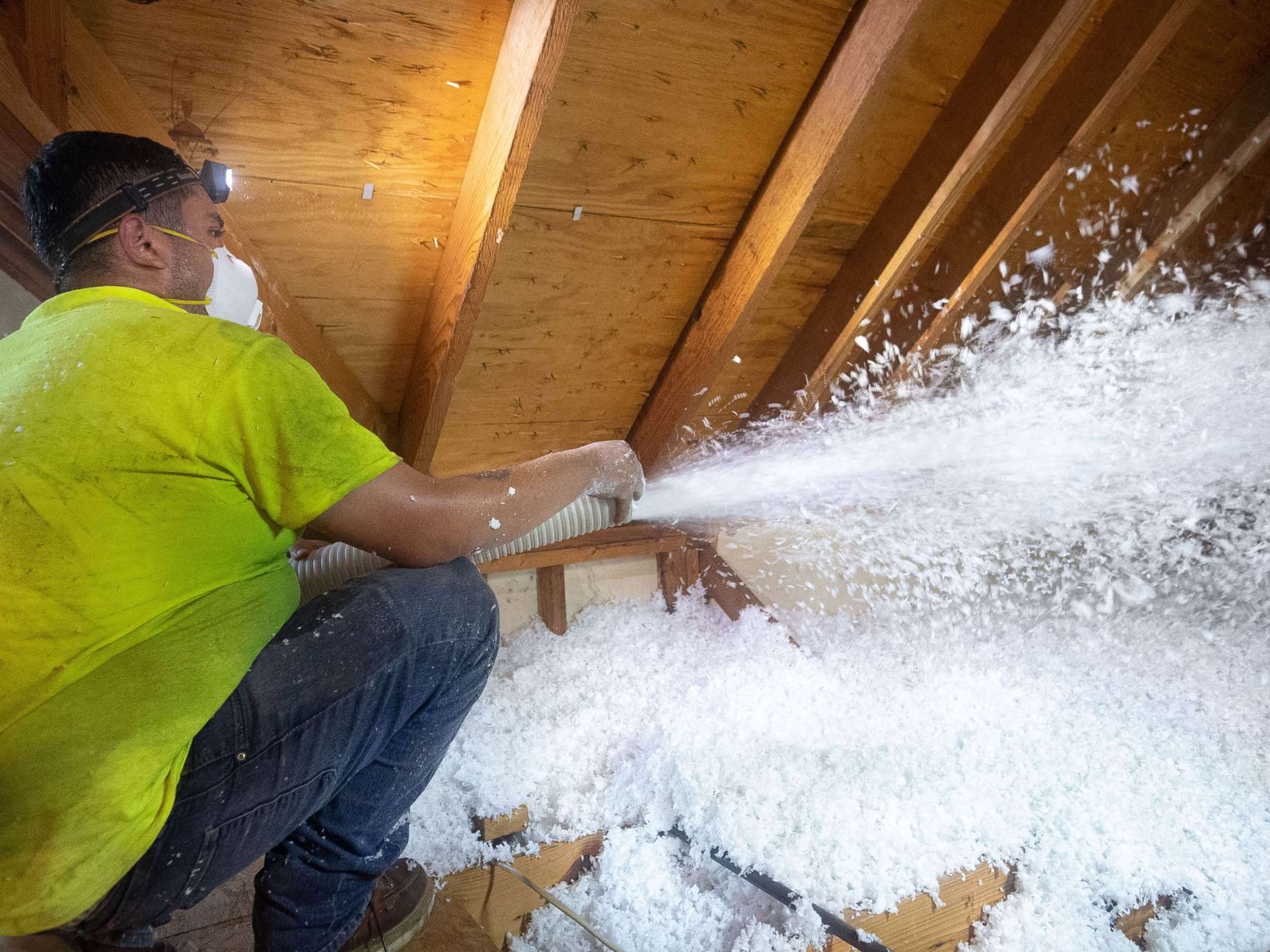
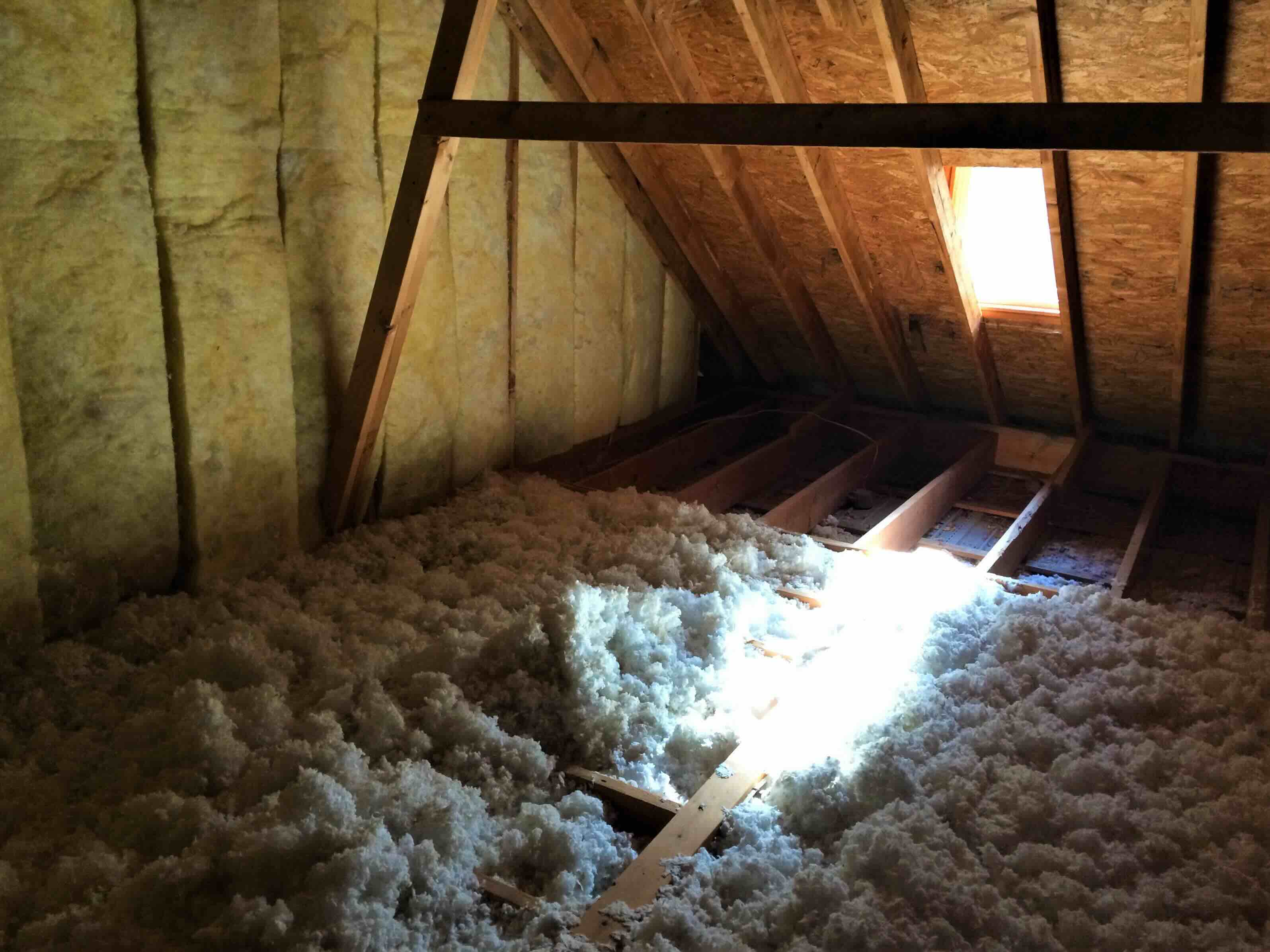
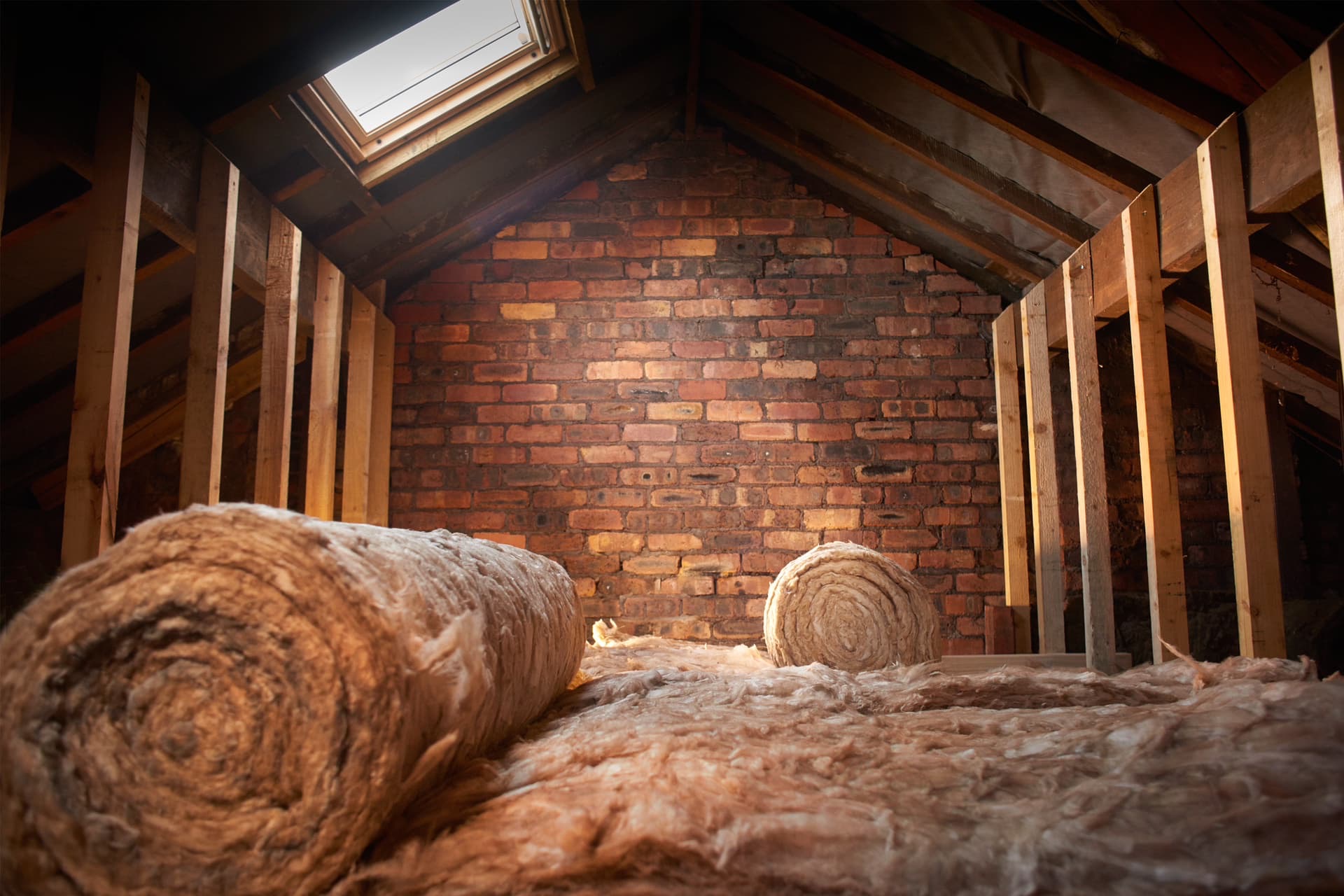
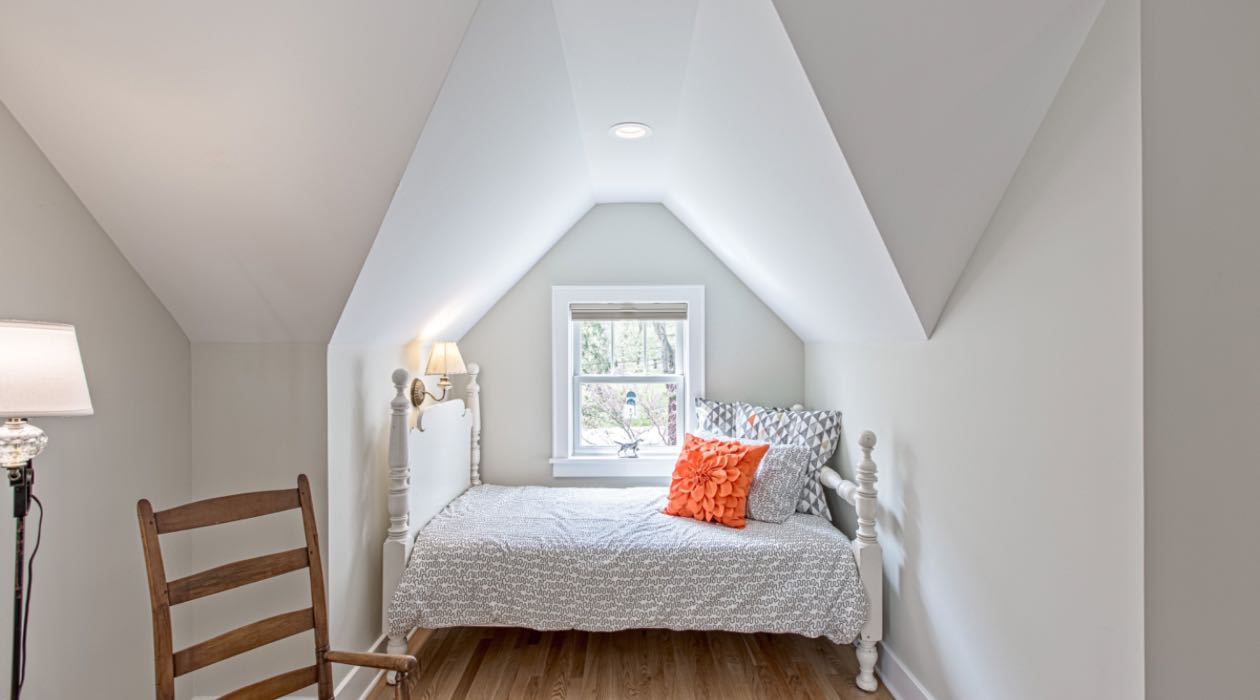

0 thoughts on “How Does Attic Insulation Help In Summer”